One in three adults doesn’t get enough sleep. If you’re one of them, you might be using melatonin supplementation before bed to improve your rest. But if you wake up in the middle of the night wondering if you should take another one, we’re here to tell you it’s a no-go. Using melatonin twice in one night is not advised.

Taking melatonin twice in one night could cause unpleasant side effects like grogginess and daytime drowsiness. While using melatonin is generally safe, too much can disrupt your sleep-wake cycle instead of regulating it. If you feel like you want to take a second dose of melatonin, chances are you need to adjust your dose.
Understanding Melatonin
Melatonin is a naturally occurring hormone produced by the pineal gland in the brain in response to darkness. When night falls, melatonin levels rise to assist in sleep preparation, and then production decreases during the day. Melatonin regulates the body’s circadian rhythms (sleep-wake cycle). This is a system of 24-hour internal cycles that help the body do important things every day, like sleep. When the retina of the eye sends messages about light and dark, the pineal gland receives the information and decides whether it should produce melatonin or not.
When the circadian rhythm is regulated, you will experience consistent, restful sleep. When the rhythms are unaligned, sleep issues can occur. Though melatonin is not the only thing the body needs for a good night’s rest, sleep issues are often due to a melatonin deficiency. This deficiency means melatonin levels are lower than normal. People choose to take supplements to help boost melatonin production in the body and realign their sleep-wake cycle.
What are Melatonin Supplements?
Melatonin supplements can be purchased over the counter in a variety of doses. They’re most often synthetically produced, though some melatonin products are made from animal by-products or microorganisms. Phyto-melatonin (plant-based melatonin) products are also growing in popularity. All melatonin products are sold as dietary supplements in the U.S. and are not FDA regulated. Without guidelines for the quality and proper dosages of these products, it’s important that you do your research and buy from brands with high-quality standards.
High-quality has met its match with our melatonin sleep gummies. Labels on these edibles list the ingredients, give nutrition information, and tell you how much to eat per serving. All of our products are tested in a lab by a third party to prove their quality, and they are made with vegan, all-natural, gluten-free, and non-GMO ingredients.
Taking melatonin is safe for most people to help with falling asleep and staying asleep, but it is not designed the same as sleeping pills. Melatonin supplements are sleep regulators. They’re meant to adjust the time your body transitions into sleep and synchronize your sleep-wake cycle to avoid disturbances. While some people take melatonin every night, it should be used short-term unless otherwise instructed by a medical physician.
Pharmaceutical sleep medications are known to be more hypnotic and intense, and their side effects are more dangerous than those of melatonin.
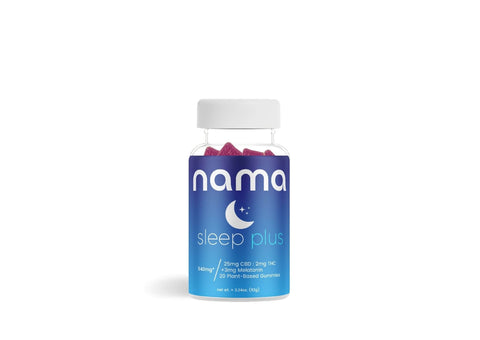
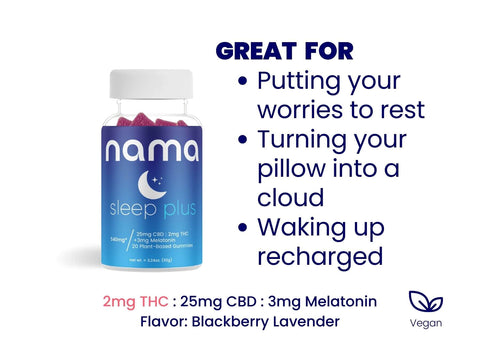
THC: 2 mg | CBD: 25 mg | Melatonin: 3 mg


THC: 10 mg | CBC: 10 mg | CBD: 10 mg | CBG: 5 mg | CBN 5mg
Who Should Take Melatonin?
Melatonin is a sleep medicine known to improve rest and reset your sleep-wake cycle. It helps people who have circadian rhythm sleep disorders that disrupt their sleep patterns. This could include delayed sleep phase disorder, a health condition that occurs when sleep patterns are delayed by two hours or more. People with advanced sleep-phase disorder will fall asleep early and wake up in the middle of the night without being able to fall back asleep. Sleep disorders like these could lead to other health issues like high blood pressure, diabetes, and obesity.
Exposure to bright lights at night could cause melatonin levels to drop. Shift workers like doctors, truck drivers, and firefighters will often struggle to sleep during the day and maintain their energy throughout the worknight. Taking melatonin after a shift ends could help people transition to sleep despite the daylight hours.
Disruption of the body’s internal clock could also occur for people who travel often. Jet lag impacts those who are traveling across time zones. It can cause temporary sleep problems along with grogginess, nausea, and head aches. Using melatonin does not alleviate symptoms of jet lag but helps the body realign the sleep-wake cycle so the body can go back to proper functionality.
A 2011 study of 61 subjects concluded that melatonin can also help people with tinnitus. Tinnitus is a ringing that occurs in one or both ears and is most prominent at night. Since it can impair one’s ability to fall asleep, melatonin can help the body relax and decrease the intensity of the noise.
Melatonin is also suitable for those who live in places that don’t get a lot of sunlight. Using the sleep aid helps raise your melatonin levels when natural light exposure isn’t as accessible. Some people experience low energy with less access to sunlight in the winter months. Those who experience seasonal depression can supplement with melatonin to ease their symptoms.
Dosing Melatonin
The body naturally produces very small amounts of melatonin, around 0.3 mg per night. This means people who take melatonin supplements may not need a high dose to reset their sleep patterns. Even though melatonin side effects are not known to be life-threatening, overconsumption of the hormone does occur due to improper dosing.
Can I Take A Second Dose Of Melatonin In The Middle Of The Night?
If you’re thinking of taking a second dose of melatonin in the middle of the night, don’t do it.
People shouldn’t take melatonin twice in one night, as it can have undesirable effects or cause you to overdose on melatonin. Perhaps you took a dose of melatonin a few hours before bed and you wake up looking to take another dose of melatonin in the middle of the night. While it’s possible that melatonin can help you fall back asleep, doing so will most likely make it very difficult to wake up in the morning. You might also experience symptoms of grogginess, low energy, and irritability throughout the day.
This is especially true if you’re using melatonin in the form of an edible because the product needs to go through a digestion process before it enters the bloodstream. If you take 5 mg melatonin gummies at 10 p.m., it could take anywhere from 30 minutes to two hours to feel the effects. The same would happen if you tried to take one at 2 AM. By the time you fall back asleep, you’ll find yourself needing to gear up to wake up again without having completed your sleep cycle. Even though people won’t experience major complications from the side effects that may occur, it is still not advised.
How Much Melatonin Should You Take?
According to the Sleep Foundation, 1–5 mg doses of melatonin seem to work best for healthy adults, but there is no specific dose of melatonin that will work for everyone. All bodies react differently to supplements and medications, so there are a few things to consider before deciding how much to take. You might want to think about:
- Why you want to take melatonin
- Your weight, age, gender, and lifestyle
- The type of melatonin product you want to use
- Other medications and health conditions you may have
You can purchase supplements with as little as 0.1 mg of melatonin per serving. Begin with a low amount to see if it works well for you before deciding to up your dose slightly. Anything more than 10 mg is considered a high dose of melatonin, and the maximum appropriate amount for healthy adults is 20 mg. While you can purchase melatonin in dosages as high as 60 mg, that doesn’t mean it’s good for you to take doses that high. Talk to your doctor before taking more than 10 mg to avoid a melatonin overdose.
Our melatonin gummies for adults have a low dose of 3 mg of melatonin per serving. These broad-spectrum CBD products are made with microdoses of 100% American hemp CBD and CBN. Taking CBD gummies for sleep is helpful for many people because it is a non-psychoactive, well-tolerated substance that eases the mind and calms anxiety before bed. CBN is known to have sedative effects that impact the body’s ability to rest.
Effects of Melatonin
The effects of melatonin last anywhere from four to eight hours. After taking a dose of melatonin, it will start to break down 20–40 minutes after taking it. This half-life refers to the amount of time it takes for melatonin to leave the system.
How long melatonin takes to work depends on how you’re taking it. For people who may be using a tincture under the tongue, the onset could be as quick as 15 to 20 minutes after consumption. With a capsule or edible, onset could begin as soon as 30 minutes after taking it. That’s why it’s best to take melatonin 30 minutes to an hour before bedtime.
Product QUIZ
Need help deciding what product is best for you? Take our quiz, just three questions until your perfect match!
What Happens if You Take Too Much Melatonin?
It is generally safe to take melatonin, but too much could lead to unwanted effects and disrupt your sleep-wake pattern even more.
A melatonin overdose can cause unpleasant symptoms such as:
- Headaches
- Nausea and vomiting
- Daytime drowsiness and grogginess
- Increased anxiety
Taking too much melatonin could result in brain fog during the day, along with irritability and trouble focusing. This can impact one’s mental health, inducing depressive symptoms. If you take too much melatonin and think you’re experiencing symptoms of melatonin overdose, discontinue use immediately. Thankfully, melatonin’s side effects are short-lived because the supplement does not stay in the body for long. Adverse effects of melatonin should not last more than 1–3 days. If they do, consult a doctor for guidance.
Who Should Not Take Melatonin?
Melatonin is not for everyone. For people who have issues with their blood pressure, melatonin may not be the safest option. Too much melatonin in the body could cause low blood pressure. It could also negatively interact with hypotension medications.
Blood pressure medication isn’t the only one that melatonin could negatively impact. If you’re taking anticoagulants, you might want to steer clear of melatonin use. When taken in high doses, melatonin can sometimes act as a blood thinner. If you take diabetes medications, be aware that melatonin might affect your blood sugar levels.
Due to a lack of research, taking melatonin while pregnant isn’t recommended unless under the care of a medical professional. The same applies to children, as well. Melatonin can be safe for kids, but it should only be taken with the instruction of a health or sleep specialist or health expert who can assist in regulating dosage.
Melatonin FAQ
Melatonin is generally safe for use in healthy adults. Experiencing major complications when taking melatonin is uncommon. However, if you experience health conditions like blood pressure issues, diabetes, or are pregnant, melatonin may not be right for you without the care of a doctor.
People taking low to high melatonin doses should wait 10 to 12 hours before taking another dose. The effects of melatonin last for about six to eight hours. Taking more during that time could disrupt your sleep even more and affect your daily life.
It is not advised to take melatonin twice a day. The body produces 0.3 mg of melatonin naturally, and that might be all the body needs for effective sleep. If you’re taking microdoses of melatonin (between 0.1 mg and 1 mg a day), the chances of experiencing side effects are low when taking more than once a day.
Taking more than 10 mg of melatonin a day could cause unpleasant side effects. Taking 10 mg of melatonin twice a day might lead to a melatonin overdose. Symptoms of overconsumption of melatonin might include headaches, nausea, grogginess, and irritability.
Taking two melatonins in one night is not life-threatening. The symptoms will vary depending on how much you took and the way you consumed it. Doses of melatonin can range from 0.1 mg to over 20 mg of melatonin per serving. Taking two 0.1 mg of melatonin will have different effects than taking two 20 mg. Generally, it’s best to take melatonin only once per night.
A melatonin overdose is possible, but since the supplement leaves the system quickly, symptoms of an overdose will not last long. If you experience headaches or grogginess during the day, stop taking melatonin.
Sleeping well and waking up feeling recharged is key. With our vegan Sleep Plus Gummies you can experience the benefits of melatonin along with microdoses of THC and CBD. This full-spectrum CBD product is made with federally legal hemp based on the regulations of the 2018 Farm Bill and contains no more than 0.3% THC by dry weight per serving.
Research shows that microdosing THC for sleep reduces sleep latency and makes it easier to fall asleep. With just 2 mg of THC per serving, our edibles let you reap the benefits of microdosing THC without experiencing mind-altering effects.
It is not recommended to take melatonin in the middle of the night. Doing so could cause you to struggle to wake up the next day and make it difficult to maintain energy levels to be productive throughout the day.
Here is a summary of the most important things to remember about melatonin and sleep.
- Melatonin is a hormone that helps regulate sleep-wake cycles; it's often used as a sleep medication to help people fall asleep more easily.
- Electronic screens emit blue light, which can suppress melatonin production, making it harder to feel drowsy and fall asleep.
- Preparations for sleep, such as establishing a relaxing bedtime routine and limiting exposure to bright light, can improve sleep quality.
- Melatonin may have potential benefits for individuals with rheumatoid arthritis, multiple sclerosis, or weight loss goals, but more research is needed.
- Taking melatonin to avoid extreme drowsiness can be useful in specific situations, such as jet lag or shift work, but it should not be used as a long-term solution.
- Negative side effects of melatonin can include headache, dizziness, and undesired daytime sleepiness.
- Medically reviewed studies suggest that a low dose of melatonin is generally safe for short-term use, but long-term effects are still unclear.
- Melatonin supplements may affect blood sugar levels, so individuals with diabetes or related conditions should talk to their doctor before using melatonin.
- Healthy living practices, such as regular exercise, a balanced diet, and stress management, can also improve sleep quality.
- It's advisable to consult a healthcare professional before starting any new sleep medication or supplement, including melatonin, to ensure proper usage.
Top Sellers
New? Start with our Ultimate Sampler!

THC: 10 mg | CBC: 10 mg | CBD: 10 mg | CBG: 5 mg | CBN 5mg
Citations:
- Advisor, S. (2022, August 23). 54 Shocking Sleep Statistics, Data and Trends Revealed for 2023. Sleep Advisor. https://www.sleepadvisor.org/sleep-statistics/
- Hurtuk, A., Dome, C., Holloman, C. H., Wolfe, K., Welling, D. B., Dodson, E. E., & Jacob, A. (2011, July). Melatonin: Can it Stop the Ringing? Annals of Otology, Rhinology & Laryngology, 120(7), 433–440. https://doi.org/10.1177/000348941112000703
- Melatonin Dosage by Age and Weight | Sleep Foundation. (2021, May 28). Sleep Foundation. https://www.sleepfoundation.org/melatonin/melatonin-dosage-how-much-should-you-take
- Farm Bill. (n.d.). Farm Bill | USDA. https://www.usda.gov/farmbill
- Vaillancourt, R., Gallagher, S., Cameron, J. D., & Dhalla, R. (2022, April 15). Cannabis use in patients with insomnia and sleep disorders: Retrospective chart review. PubMed Central (PMC). https://doi.org/10.1177/17151635221089617
nama CBD FDA & Legal Disclaimer
Our products are not intended to diagnose, treat, cure, or prevent any disease. They are not a replacement for prescription medications and have not been evaluated by the FDA (Food and Drug Administration).
The information provided on this website does not, and is not intended to, constitute legal advice or any statements of the status of any laws. Any information, content, and materials available on this site are for general informational purposes only, and are not intended to be relied upon for any purpose.
Readers of this website should contact their attorney to obtain advice with respect to any particular legal matter including decisions on what products are, or are not, legal to sell, possess, or consume. No reader, user, or browser of this site should act or refrain from acting on the basis of information on this site without first seeking legal advice from their own counsel in the relevant jurisdiction.
Only your individual attorney can provide assurances that the information contained herein – and your interpretation of it – is applicable or accurate for your particular situation. Use of, and access to, this website or any of the links or resources contained within the site do not create an attorney-client relationship between the reader, user, or browser, and website authors, contributors, contributing law firms, or committee members and their respective employers.
About
Learn
Join us on this journey

© Copyright 2026 nama Products LLC. All Rights Reserved.
†These statements have not been evaluated by the Food and Drug Administration. These products are not intended to diagnose, treat, cure or prevent any disease. All information presented here is not meant as a substitute for or alternative to information from health care practitioners. Please consult your health care professional about potential interactions or other possible complications before using any product.
††The information provided on this website does not, and is not intended to, constitute legal advice or any statements of the status of any laws. Any information, content, and materials available on this site are for general entertainment purposes only, and are not intended to be relied upon for any purpose.
nama: The only source for Buzz Drops™

By clicking ‘Yes,’ you agree to our
Terms & Conditions and Privacy Policy
123 John Doe Street
Your Town, YT 12345
Store Hours
Sun: Closed
Mon-Fri: 9:00 - 17:00
Sat: 10:00 - 13:00
What to expect at pickup
Closed
Closing at 5pm
Closing at 5pm
Closing at 5pm
Closing at 5pm
Closing at 5pm
Closing at 1pm

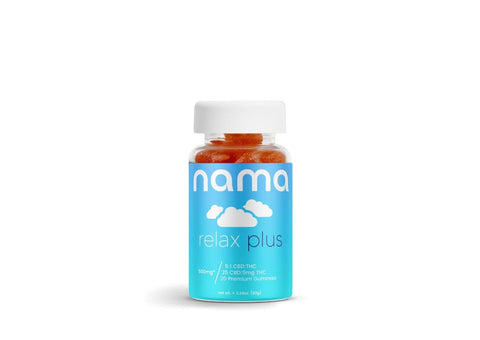

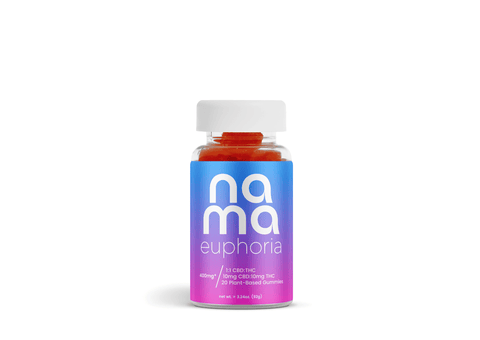

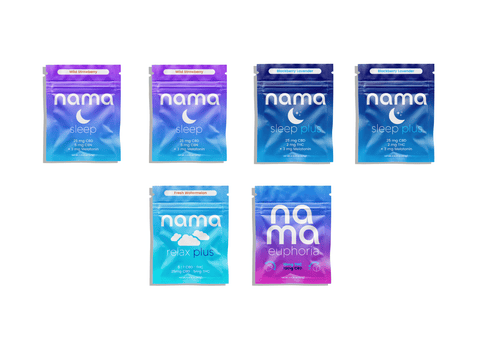

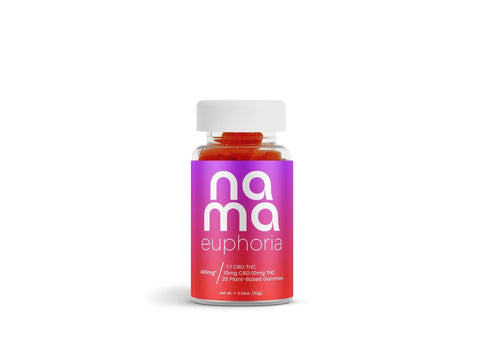

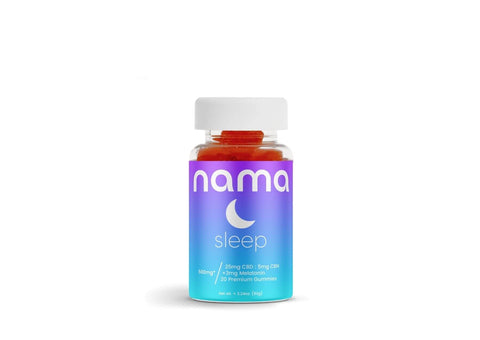

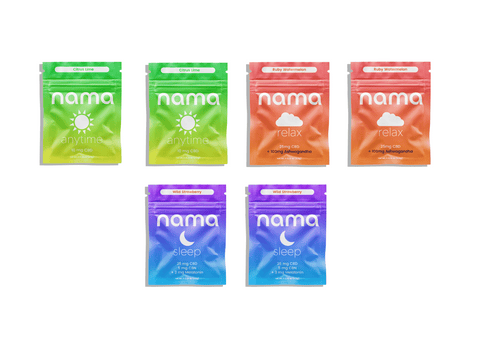
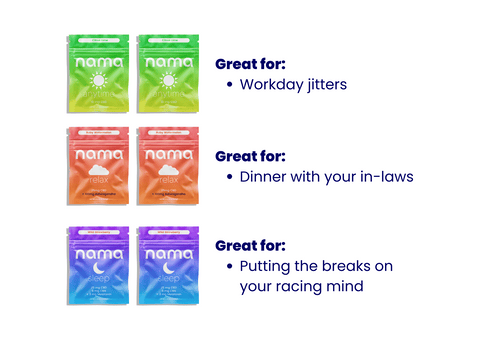







![Buzz Packs™ [THC and CBD Powder Drink Mix]](http://www.namacbd.com/cdn/shop/files/nama_buzz_packs_thc_drink_pack_white_background.png?v=1769586244&width=480)
![Buzz Packs™ [THC and CBD Powder Drink Mix]](http://www.namacbd.com/cdn/shop/files/Buzz_Packs_Label.png?v=1769586244&width=480)
![Buzz Drops™ [THC Drink Drops]](http://www.namacbd.com/cdn/shop/files/nama_thc_buzz_drops.png?v=1711412866&width=480)
![Buzz Drops™ [THC Drink Drops]](http://www.namacbd.com/cdn/shop/files/buzz-drop-wine-comparison.png?v=1736882023&width=480)
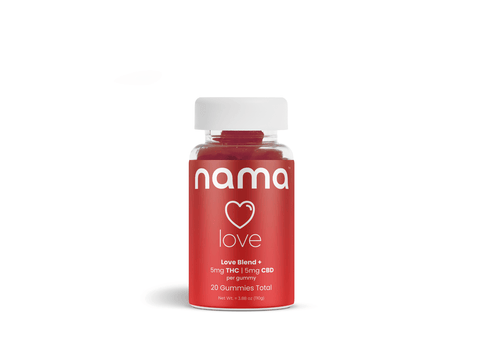






Comments (0)
There are no comments for this article. Be the first one to leave a message!